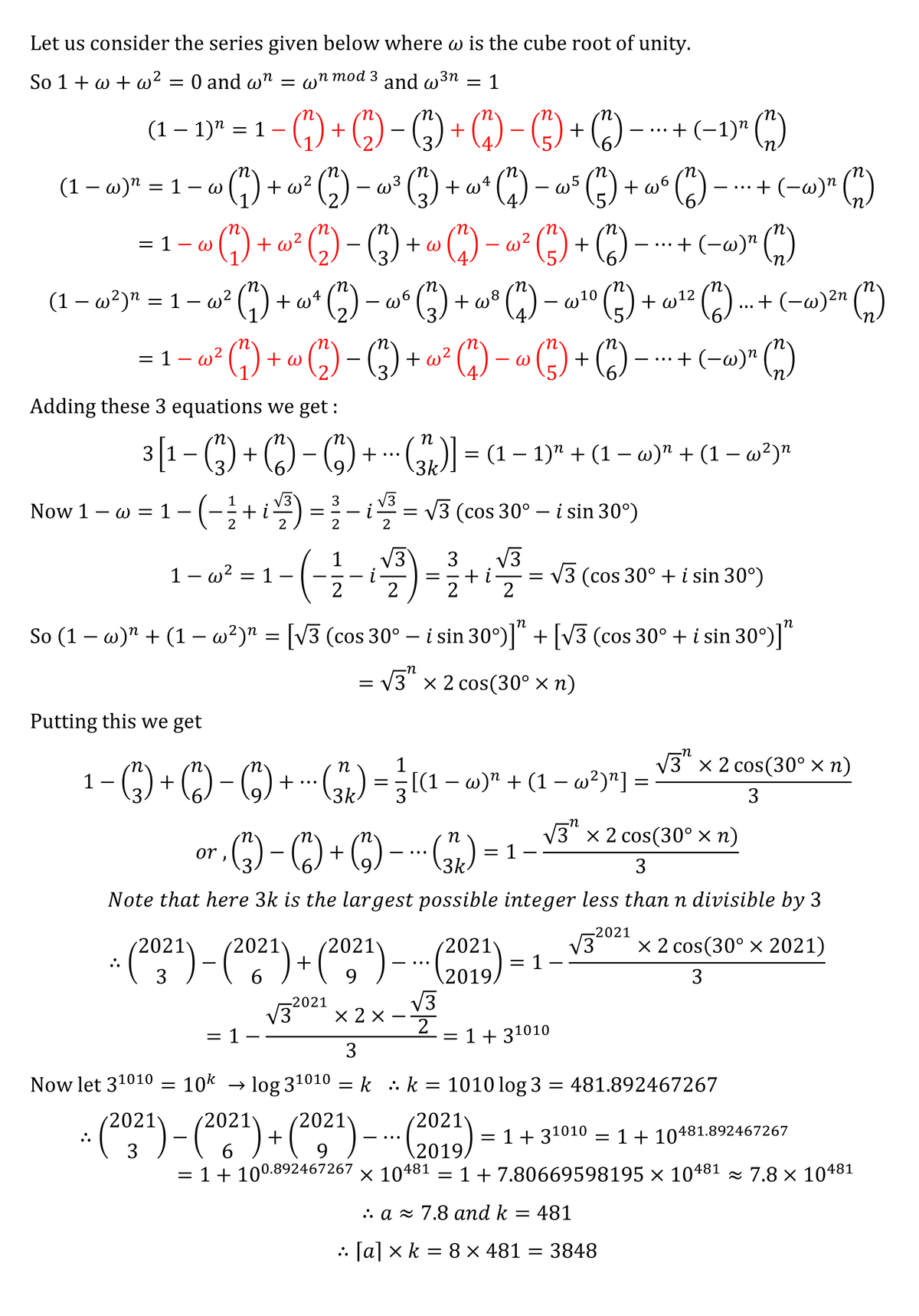A finite series
( 3 2 0 2 1 ) − ( 6 2 0 2 1 ) + ( 9 2 0 2 1 ) − . . . + ( 2 0 1 9 2 0 2 1 ) = a × 1 0 k Here the number has been expressed in scientific form. Enter ⌈ a ⌉ × k
For more finite series : A finite series-2 , A finite series-3
The answer is 3848.
This section requires Javascript.
You are seeing this because something didn't load right. We suggest you, (a) try
refreshing the page, (b) enabling javascript if it is disabled on your browser and,
finally, (c)
loading the
non-javascript version of this page
. We're sorry about the hassle.
2 solutions
Let N : = 2 0 2 1 and define the sequence a k : = ( − 1 ) k + 1 ( k N ) . If we wanted to calculate the sum over the entire sequence a k , the task would be quite easy. However, we are only interested in every third term! What we need is a filter that takes in the entire sequence a k and sets all unwanted terms to zero. Luckily, there is a thing called
Unity-Filter: Let n ∈ N and define z = e i n 2 π as the fundamental n'th root of unity. Then k ∈ Z : u k ( n ) : = n 1 l = 0 ∑ n − 1 z k l = { 1 : 0 : k ∈ n Z else
If we multiply the unity-filter with a sequence, it only lets every n'th element pass and sets all other elements to zero. In this task, we need a unity-filter with n = 3 to rewrite the sum X we need to calculate. Adding a 0 = − 1 , we get X − 1 : = k = 0 ∑ ⌊ 3 N ⌋ a 3 k = k = 0 ∑ N u k ( 3 ) a k = 3 1 l = 0 ∑ 2 k = 0 ∑ N ( k N ) ( − 1 ) k + 1 z l k = − 3 1 l = 0 ∑ 2 ( 1 − z l ) N ∣ Binomial Theorem The term with l = 0 vanishes, and the other two are complex conjugates because z 2 = z ∗ : X = 1 − 3 2 ℜ { ( 1 − z ) N } = 1 − 3 2 ⋅ 3 2 N cos ( − N 6 π ) = 1 + 3 2 N − 1 ∣ ∣ ∣ 1 − z = 1 − e i 3 2 π = 3 e − i 6 π While it is possible to calculate X with arbitrary size integers (e.g. with maxima), we can also use logarithms to find a , k : k = ⌊ lo g 1 0 ( 1 + 3 2 N − 1 ) ⌋ = : ⌊ k ′ ⌋ = 4 8 1 , a = ⌈ 1 0 k ′ − k ⌉ = 8 ⇒ a × k = 3 8 4 8
